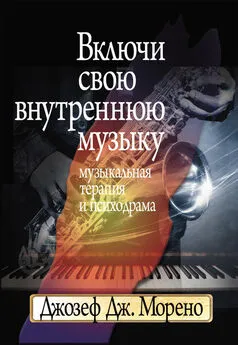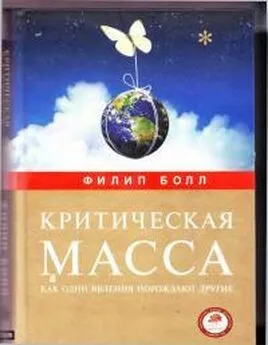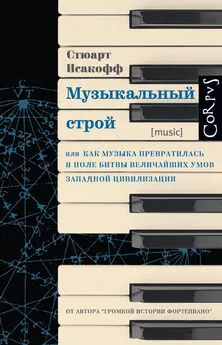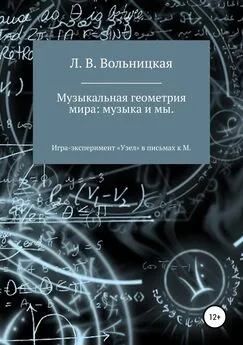Филип Болл - Музыкальный инстинкт. Почему мы любим музыку
- Название:Музыкальный инстинкт. Почему мы любим музыку
- Автор:
- Жанр:
- Издательство:Литагент 5 редакция
- Год:2021
- Город:Москва
- ISBN:978-5-04-113519-5
- Рейтинг:
- Избранное:Добавить в избранное
-
Отзывы:
-
Ваша оценка:
Филип Болл - Музыкальный инстинкт. Почему мы любим музыку краткое содержание
Музыкальный инстинкт. Почему мы любим музыку - читать онлайн бесплатно ознакомительный отрывок
Интервал:
Закладка:
11 Каприччиозо: За пределами стиля
Стр. 325 ‘Always remember that a theme is, after all, only a succession of notes’: Copland (1957), pp. 19—20. • Стр. 329 ‘A classical composer did not always need themes’: quoted in Rothstein (1996), p. 96. • Стр. 333 ‘After sufficient training, GenJam’s playing’: Biles (1994), p. 136. ‘it does not please us particularly well’: Spector and Alpern (1994), p. 7. • Стр. 335 ‘a decline in morals’: Scruton (1997), p. 502. • Стр. 336 ‘it has become increasingly clear that the coherence systems’: Becker and Becker (1979/1983), pp. 34—5. • Стр. 338 ‘traditional modes of deviation are exaggerated to extremes’: Meyer (1956), p. 71. ‘Modulations, cadences, intervals and harmonious progressions’: Hanslick (1891), p. 81. ‘unifies all elements so that their succession and relation’: A. Schoenberg, Style and Idea, ed. L. Stein, Faber & Faber, London, 1975, p. 279. • Стр. 339 ‘What would remain of the art of painting’: Scruton (1997), p. 291. • Стр. 341 ‘makes ever heavier demands upon the training’: Babbitt (1958), Доступно на http://www.palestrant.com/ babbitt.html. ‘I dare suggest that the composer would do himself ’: ibid. • Стр. 343 ‘the best music utilizes the full potential of our cognitive resources’: Lerdahl, in Sloboda (ed.) (1988), p. 255.
12 Парландо: Почему музыка говорит с нами
Стр. 355 ‘alone in the world with his more or less unintelligible language’: quoted in Cooke (1959), p. ix. • Стр. 358 ‘Whenever someone spoke to me’: quoted in M. Zemanová, Janᡠcek: A Composer’s Life, John Murray, London, 2002, p. 75. • Стр. 359 ‘Nations creates music, composers only arrange it’: quoted in F. Bowers, Scriabin: A Biography, 2nd revised edn, Dover, Mineola, New York, 1996, p. 20. • Стр. 362 ‘an intensified version of the actual sounds’: Grove’s Dictionary of Music and Musicians, Vol. 5, Macmillan, New York, 1935, p. 605. • Стр. 363 ‘If I took a Czech, or an English, French or other folksong’: in Z. E. Fischmann (ed.), Janᡠcek-Newmarch Correspondence, Kabel, Rockville, 1989, p. 123. • Стр. 373 ‘closer to the surface’: Lerdahl (2001), p. 143. • Стр. 374 ‘a brilliant creative work’: quoted in Sloboda (1985), p. 260. • Стр. 380 ‘can prime representations of meaningful concepts’: Koelsch et al. (2004), p. 306.
13 Сериозо: Смысл музыки
Стр. 381 ‘It is easier to pin a meaning-word on a Tschaikovsky’: Copland (1957), pp. 10—11. ‘Is there meaning in music?’: ibid., p. 9. ‘If a composer could say what he had to say in words’: attributed to Mahler in a letter to Max Marschall, 26 March 1896. • Стр. 382 ‘People usually complain that music is too many-sided’: quoted in L. Botstein, ‘Recreating the career of Felix Mendelssohn’, in Mendelssohn and His World, ed. R. L. Todd, Princeton University Press, Princeton, 1991, p. 60. ‘Language is a common and practical element’: P. Valéry, Pure Poetry: Notes for a Lecture, quoted in The Creative Vision, ed. H. M. Black and Salinger, Grove Press, New York, 1960, pp. 25—6. ‘all art constantly aspires towards the condition of music ‘: W. Pater, The Renaissance: Studies in Art and Poetry, Macmillan, London, 1873, p. 111. ‘If, as is nearly always the case’: I. Stravinsky, Igor Stravinsky: An Autobiography, W. W. Norton, New York, 1962, p. 53. ‘Strictly speaking you cannot write about music’: quoted in Critchley and Henson (1977), p. 217. • Стр. 383 ‘Music expresses, at different moments’: Copland (1957), p. 10. ‘music which always says the same thing’: ibid., p. 11. • Стр. 384 ‘when men hear imitations, even apart from the rhythms’: Aristotle, Politics 8, part V, transl. B. Jowett. ‘has the power either to improve or to debase’: quoted in Hindemith (1961), p. 8. ‘Let me make the songs of a nation’: quoted in Grout (1960), p. 8. ‘when there are no words, it is very difficult’: Plato, Laws Book II, transl. B. Jowett. ‘music, like humus in a garden soil’: Hindemith (1961), p. 6. • Стр. 385 ‘The riches of music are so excellent’: M. Luther, Foreword to G. Rhau, Symphoniae iucundae (1538), quoted in H. Lockyer, Jr., All the Music of the Bible, Hendrickson, Peabody, 2004, p. 144. ‘a discipline, and a mistress of order and good manners’: quoted in J. E. Tarry, ‘Music in the educational philosophy of Martin Luther’, Journal of Research in Music Education 21, 355—65 (1973). ‘turning modern men, women and children back to the stages’: Anon., ‘Condemns age of jazz’, New York Times 27 January 1925, p. 8; quoted in Merriam (1964), p. 242. • Стр. 387 ‘the loveable glad man who paces hale and hearty’: R. Wagner, Judaism in Music and Other Essays, transl. W. A. Ellis, London, 1894, pp. 222—3. ‘Schumann’s masculine personae thus coalesce under a feminine sign’: Kramer (2002), p. 113. • Стр. 388 ‘One day the children’s children of our psychologists’: A. Schoenberg, in Style and Idea, ed. L. Stein. Faber & Faber, London, 1975; quoted in Cooke (1959), p. 273. • Стр. 390 ‘only enhance[s] the presence of meaning as an issue or problem’: Kramer (2002), p. 16. • Стр. 391 ‘who go so far as to call every transposition a rank violation’: Révész (2001), p. 113. ‘tender, soft, sweet, effeminate’: quoted in Duffin (2007), p. 44. • Стр. 393 ‘leads some people into a pseudo feeling of profound melancholy’: Hindemith (1961), p. 47. ‘One is bound to regard anyone who reacts in this way’: Cooke (1959), p. 23. ‘The truly musical person, with a normal capacity’: ibid., p. 22. • Стр. 394 ‘there is a tremolando passage of the kind’: Scruton (1997), p. 43. ‘Emotional responses to music are neither correct nor incorrect’: Raffman (1993), p. 59. • Стр. 395 ‘The listener thus makes direct contact’: Cooke (1959), p. 19. • Стр. 396 ‘there are too many performers and composers whose lives’: Blacking (1987), p. 40. • Стр. 398 ‘the art of pleasing by the succession and combination’: C. Burney, ‘Essay on musical criticism’, introduction to his General History of Music, Book III, 1789; quoted in Grout (1960), p. 451. • Стр. 401 ‘One could not better define the sensation produced by music’: I. Stravinsky, Chronicle of My Life, Gollancz, London, 1936, p. 93. • Стр. 407 ‘A more helpful distinction than classical and rock music’: quoted in Guardian Review 27 June 2009, p. 12. ‘in contrast to that of the European executant musician’: J. Kunst, Music in Java, Martinus Nijhoff, The Hague, 1949, p. 401.
Эпилог: Состояние музыки
Стр. 409 ‘I believe that every scientist who studies music’: Sloboda (2005), p. 175. • Стр. 411 ‘The idea that educationalists must be converted’: Blacking (1987), p. 120. ‘something for the sake of which it is worthwhile’: F. Nietzsche, Beyond Good and Evil, transl. R. J. Hollingdale, Penguin, London, 2003, p. 111.
Список литературы
Adler, D. ‘The earliest musical tradition’, Nature 460, 695—6 (2009).
Adorno, T. Prisms, transl. S. and S. Weber. MIT Press, Cambridge, Ma.,1981.
Adorno, T. Philosophy of Modern Music, transl. A. G. Mitchell and W. V. Blomster. Continuum, New York, 2003.
Apel, W. The Notation of Polyphonic Music 900—1600. Medieval Academy of America, 1953.
Aristotle, Politics, transl. T. A. Sinclair. Penguin, Harmondsworth, 1981.
Assmann, J., Stroumsa, G. G. and Stroumsa, G. A. G. Transformations of the Inner Self in Ancient Religions. Brill, Leiden, 1999.
Avanzini, G., Lopez, L. and Majno, M. (eds). ‘The Neurosciences and Music’, Annals of the New York Academy of Sciences 999 (2003).
Avanzini, G., Koelsch, S. and Majno, M. (eds). ‘The Neurosciences and Music II: From Perception to Performance’, Annals of the New York Academy of Sciences 1060 (2006).
Ayari, M. and McAdams, S. ‘Aural analysis of Arabic improvised instrumental music (Taqsim)’, Music Perception 21, 159—216 (2003).
Babbitt, M. ‘Who cares if you listen?’, High Fidelity February 1958.
Bailes, F. ‘Timbre as an elusive component of imagery for music’, Empirical Musicology Review 2, 21—34 (2007).
Balkwill, L. L. and Thompson, W. F. ‘A cross-cultural investigation of the perception of emotion in music: psychophysical and cultural clues’, Music Perception 17, 43—64 (1999).
Ball, P. ‘Mingle bells’, New Scientist 13 December 2003, pp. 40—3.
Ball, P. ‘Facing the music’, Nature 453, 160—2 (2008).
Balter, M. ‘Seeking the key to music’, Science 306, 1120—2 (2004).
Balzano, G. ‘The group-theoretic description of 12-fold and microtonal pitch systems’, Computer Music Journal 4, 66—84 (1980).
Barbour, J. M. Tuning and Temperament. Michigan State College Press, East Lansing, 1951.
Bartók, B. and Lord, A. B. Serbo-Croatian Folk Songs. Columbia University Press, New York, 1951.
Becker, A. L. and Becker, J. ‘A grammar of the musical genre srepegan’, Journal of Music Theory 23, 1—43 (1979); reprinted in Asian Music 14, 30—73 (1983).
Becker, A. L. and Becker, J. ‘Reflections on srepegan: a reconsideration in the form of a dialogue’, Asian Music 14, 9—16 (1983).
Benamou, M. ‘Comparing musical affect: Java and the West’, The World of Music 45, 57—76 (2003).
Bergeson, T. R. and Trehub, S. E. ‘Infants’ perception of rhythmic patterns’, Music Perception 23, 245—60 (2006).
Bernstein, L. The Unanswered Question. Harvard University Press, Cambridge, Ma., 1976.
Bharucha, J. J. ‘Anchoring effects in music: the resolution of dissonance’, Cognitive Psychology 16, 485—518 (1984).
Bharucha, J. J. ‘Music cognition and perceptual facilitation’, Music Perception 5, 1—30 (1987).
Bigand, E. and Parncutt, R. ‘Perceiving musical tension in long chord sequences’, Psychological Research 62, 237—54 (1999).
Bigand, E., Poulin, B., Tillmann, B., D’Adamo, D. A. and Madurell, F. ‘Sensory versus cognitive components in harmonic priming’, Journal of Experimental Psychology: Human Perception and Performance 29, 159—71 (2003).
Biles, J. A. ‘GenJam: A generative algorithm for generating jazz solos’, in Proceedings of the 1994 International Computer Music Conference, International Computer Music Association, San Francisco, 1994. Доступно на http://www.it.rit.edu/~jab/GenJam94/Paper.html.
Bischoff Renninger, L., Wilson, M. P. and Donchin, E. ‘The processing of pitch and scale: an ERP study of musicians trained outside of the Western musical system’, Empirical Musicology Review 1 (4), 185—97 (2006).
Blacking, J. How Musical is Man? Faber & Faber, London, 1976.
Blacking, J. A Commonsense View of All Music. Cambridge University Press, Cambridge, 1987.
Blood, A., Zatorre, R. J., Bermudez, P. and Evans, A. C. ‘Emotionalresponses to pleasant and unpleasant music correlate with activity in paralimbic brain regions’, Nature Neuroscience 2, 382—87 (1999).
Blood, A. J. and Zatorre, R. J. ‘Intensely pleasurable responses to music correlate with activity in brain regions implicated in reward and emotion’, Proceedings of the National Academy of Sciences USA 98, 11818—23 (2001).
Boulez, P. ‘Timbre and composition – timbre and language’, Contemporary Music Review 2, 161—72 (1987).
Braun, A., McArdle, J., Jones, J., Nechaev, V., Zalewski, C., Brewer, C. and Drayna, D. ‘Tune deafness: processing melodic errors outside of conscious awareness as reflected by components of the auditory ERP’, PLoS One 3 (6), e2349 (2008).
Читать дальшеИнтервал:
Закладка:










